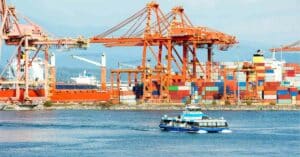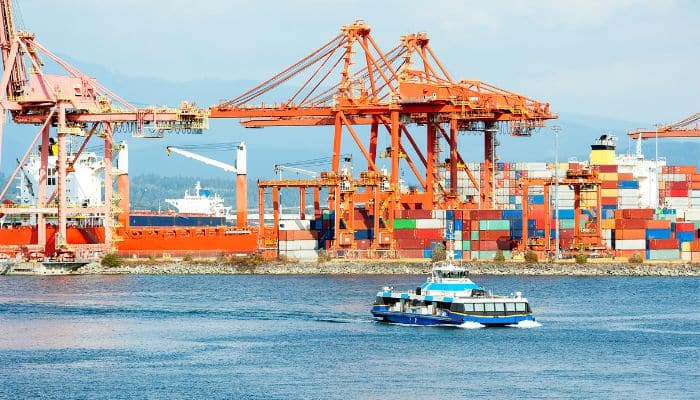
Installation Of Turbine Twice The Height Of London Eye Begins At World’s Largest Offshore Wind Farm
August 5, 2023
Divers Find 97 Kilos Of Cocaine Worth Over €11 Million In A Ship At Malta Freeport
August 7, 2023
In a significant development for Canada’s trade landscape, the International Longshore and Warehouse Union (ILWU), the union representing dock workers in western Canada, has voted in favour of an enhanced labour agreement, effectively putting an end to a month-long disagreement that had sent ripples through the nation’s busiest ports. This breakthrough was announced on Friday, following weeks of tense negotiations and disruptive labour actions that had severely impacted trade operations and raised concerns about potential inflationary pressures.
The ILWU revealed that an impressive 74.66% of its members voted in favour of the settlement terms, indicating a solid consensus among the workforce. The contract disputes during the negotiations had led to trade disruptions worth billions of dollars, sparking worries about economic stability and inflation. Over the weekend, another critical development emerged as the union, and employers reached a tentative agreement on a new contract. This move averted an imminent strike that could have further exacerbated the situation.

However, the finalization of this agreement was contingent upon the workers’ approval, demonstrating the collaborative nature of the resolution process. The Canadian government had stepped in earlier when the workers rejected a previous contract, directing the Canada Industrial Relations Board to intervene and mediate the dispute. The primary objective behind this intervention was to ensure the continued and smooth operation of two of Canada’s most active ports—Vancouver and Prince Rupert—both crucial hubs for international trade.
The confirmation of the ratified deal came from various quarters, with Canada’s Minister of Labour, Seamus O’Regan, and the British Columbia Maritime Employers Association (BCMEA) jointly announcing the positive outcome.
The revised collective agreement encompasses a range of benefits for the workers, including wage hikes, improved benefits, and enhanced training opportunities. The BCMEA emphasized the dedication and expertise of the British Columbia waterfront workforce and the agreement’s positive implications for the future operations of the West Coast ports.
Minister O’Regan has taken proactive measures to assess the impact of this disruptive standoff and ensure that such significant disruptions to the supply chain are mitigated in the future. The aim is to preserve stability and prevent the recurrence of similar challenges. While specific details of the review are yet to be finalized, this move underscores the government’s commitment to safeguarding the nation’s economic interests.
While business groups have expressed approval for the agreement, they have also called on the federal government to explore innovative strategies for addressing labour disputes in the future. Robin Guy, Vice President of the Canadian Chamber of Commerce, stressed that the supply chain’s resilience relies on effectively addressing vulnerabilities.
The ILWU, representing approximately 7,500 dock workers, had engaged in protracted negotiations with the BCMEA. Contentious issues, particularly those related to compensation and the union’s expanded authority over routine maintenance tasks at terminals, culminated in a 13-day strike in July. The eventual agreement signals a crucial step towards restoring stability and ensuring the efficient functioning of Canada’s vital West Coast ports.
Reference: Yahoo, CBC, BIV
British Colombia’s Port Dispute Ends As Workers Accept New Tentative Deal appeared first on Marine Insight – The Maritime Industry Guide
Source: Maritime Shipping News


